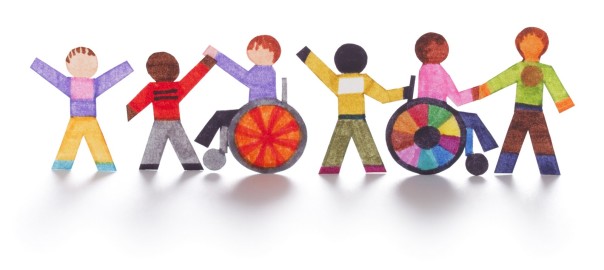We had a visitor recently who works in special ed in the US. She was going crazy over ds4 – she couldn’t keep her eyes off of him in shul on Simchas Torah- and later on she couldn’t stop talking about how ‘special’ he was.
‘Special’ is a word that I don’t particularly care for so I asked her what she meant. She seemed taken aback – ‘you can’t see that he’s special?” “All my kids are special,” I responded. “What’s special about Yirmi?”
She told me she works with many kids with Trisomy 21 of different ages and he’s not typical of kids with that diagnosis. She said he acts like a typical kid, he’s so ‘with it’ and ‘so smart’. Okay, that kind of special I can agree with. 🙂
Well, that launched a long talk (monologue? :)) on my opinion about why Yirmi is the way he is and why inclusion is critical and why special ed is not so special and how at least 80% of kids with T21 could be doing just as well or better than him if they had proper support. She was fascinated by my perspective. But she apparently had never met a parent with my outlook, because she asked me a few times in disbelief, “You really believe that how he is being raised made the difference? And you don’t think he would be better off in special ed with professionals?”
Yes, I know that how a child is raised affects his brain development. Yes, our home environment is critical to supporting his development. No, I don’t think we’re remarkable or have done anything that couldn’t easily be replicated by others. No, I don’t think he would be better off in a special ed setting. I don’t think anyone is better off in a special ed setting than with appropriate and well-mediated inclusion.
Yirmi is being raised in a family where he’s one of the gang. He’s expected to act appropriately, to express himself, to be helpful and kind – the same as we expect of any of our children. We assume he will develop on his own timeline and while we give him support and encouragement, we don’t pressure him – just like our other kids. Being treated like everyone else is really important and I think this is a huge factor in how well Yirmi is doing.
Everyone wants to belong. Everyone wants to be part of. No one wants to be ‘special’. I firmly believe that the more we treat others with compassion, acceptance, appreciation and inclusion, the better the outcome is for all of us. Not only does each individual child flourish in that environment, it makes the world a much kinder, gentler and more beautiful world to live in – for all of us.
Avivah

my daughter is working , doing arts and crafts, activities , for adults with trisomy 21. she told me recently she could tell which of the men and women were given from home, help, love, caring. the way they function as adults, and are able to do many tasks, and ask to help out , weather its preparing food , helping others etc.
People who were parented with love and support always show the results!
Oh, this is SO much my philosophy. We are ALL SPECIAL & therefore EVERYONE MUST BE INCLUDED.
Exactly Ra’anan! We are all special, we all have unique needs and we all deserve to be included!
Thanks Aviva, I always appreciate your perspective and the voice you add to the conversation. I would much rather feel included than special.
Thanks for your comment, Hinda! Special sounds nice until we think how we want to be treated, right? 🙂
“Special” is a euphemism, and like all euphemisms, it comes to be viewed as negative. Then someone comes up with a euphemism for the euphemism. But doesn’t the term “special needs” make it sound as if everyone else can be lumped together with no attention to their individuality and their needs?
You’re right, Debby, this is a problem! No matter what term we use, it’s going to become associated with a group of people who are looked at as unusually or inappropriately needy – and that keeps us from recognizing that every single one of us has unique needs and sensitivities!
There’s a discussion about this post going on right now on imamother. 🙂
That’s interesting! Thanks for letting me know.